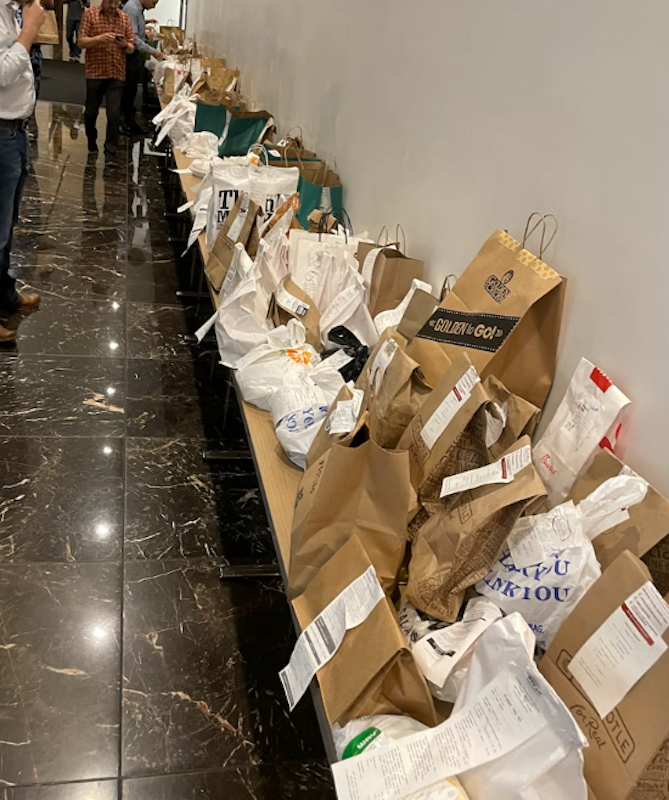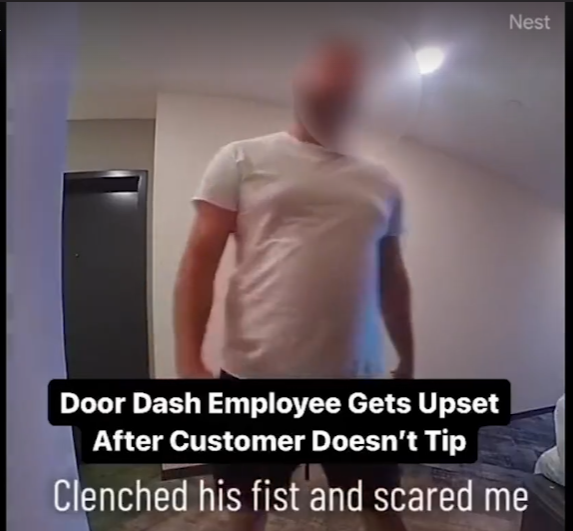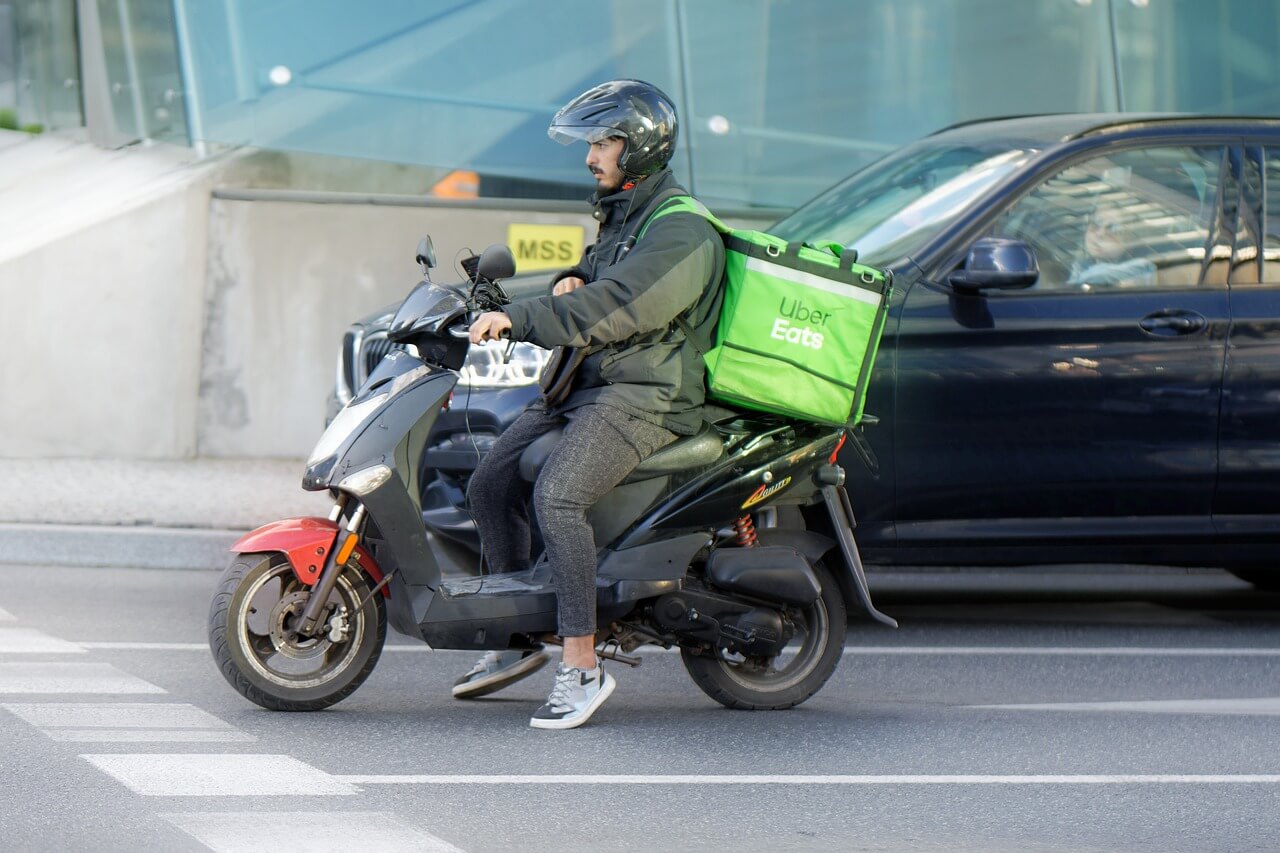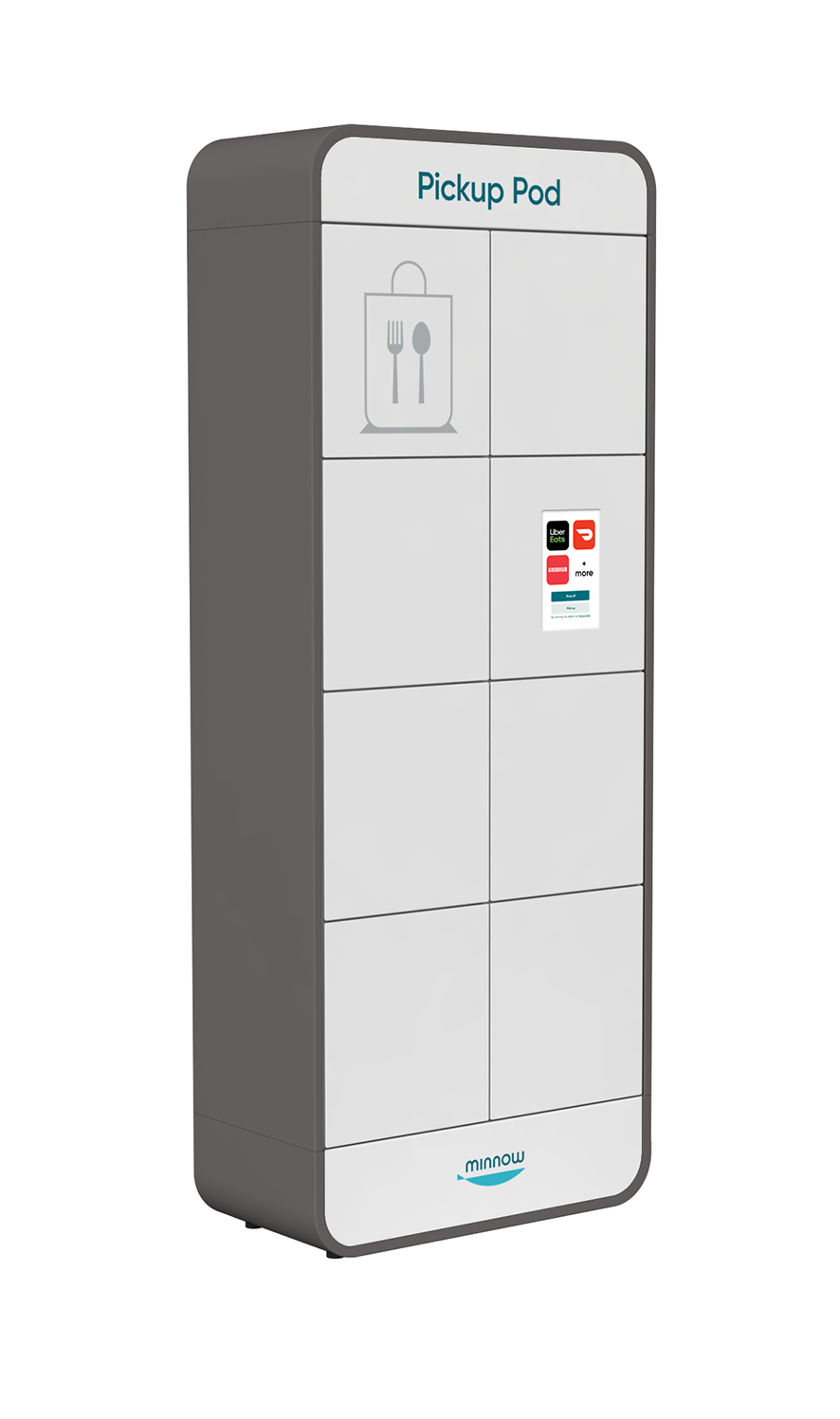10/1/21
Why office properties could be liable for expired food deliveries
Written by Steven Sperry

Food deliveries have become increasingly popular in recent years, with many tenants relying on them for a growing portion of their meals. While food deliveries are a convenient option, they can also pose a health risk to tenants. In this blog, we’ll explore why commercial properties could be liable for food deliveries that cause foodborne illness or injury, and make parallels with slip-and-fall liabilities.
Health and safety concerns
According to the Centers for Disease Control (CDC), cooked meals can make you sick if they sit out for more than 2 hours (or 1 hour if it’s above 90°F). In many CRE properties, food deliveries are dropped off in lobbies for tenants to pick up later. While most of these deliveries are picked up within 2 hours, a significant number are not. According to time study data gathered from over 2,746 food deliveries, 2.9% of deliveries are picked up after 2 hours, while 1.9% are picked up after 6 hours. For a typical CRE property that receives 40 food deliveries a day, that means every month 35 deliveries sit out for more than 2 hours before being picked up and consumed, while 23 sit out for more than 6 hours.
Each expired food delivery poses a significant health and safety risk to tenants, just as slip and fall hazards pose a physical risk. Consuming expired food can lead to food poisoning, which can result in severe illness and even death in some cases. Symptoms of food poisoning can include nausea, vomiting, diarrhea, stomach cramps, and fever. In some cases, food poisoning can lead to long-term health problems, such as liver and kidney damage. Every year in the United States, 48 million people experience foodborne illness. Of those, 128,000 require hospitalization and 3,000 die.
Just as slip and fall hazards can lead to serious injury, including broken bones, head trauma, and spinal injuries, expired food deliveries can lead to serious injury or even death. In both cases, CRE owners and operators have a responsibility to ensure the safety of their tenants and to take reasonable steps to prevent harm. If a tenants becomes ill or injured as a result of consuming expired food or slipping and falling on a hazardous surface, the property could be held negligent for failing to correct a hazard.
Contracts and agreements
CRE properties generally have contracts in place with maintenance and cleaning companies that address slip and fall hazards. These agreements outline the responsibilities of both parties, including the steps that need to be taken to maintain a safe and hazard-free environment. If a maintenance or cleaning company fails to address a slip and fall hazard in a timely manner, it could be held liable for any injuries that result. Similarly, if a property fails to meet its obligations under the agreement, it could also be held liable if a tenant were to be injured.
However, it’s exceedingly rare for a CRE property to have these types of agreements with food delivery companies. One of the reasons for this is that the food delivery market is highly fragmented. While big companies like DoorDash, Uber Eats, Grubhub and Instacart are responsible for the majority of food deliveries, thousands of smaller food delivery companies and local restaurants also deliver food to CRE properties. It’s not realistic to negotiate and maintain contracts with all of them. That puts the burden on the property to ensure that its tenants aren’t exposed to illness or injury from consuming expired food.
Reputational damage
Apartment and condo communities whose tenants are injured by expired food deliveries are likely to suffer from reputational damage, just as they would had a tenant been injured by a preventable slip-and-fall hazard. This could make it more difficult to attract and retain tenants, which in turn could impact the financial performance of the property. Higher insurance premiums, litigation expenses, and settlement costs (which can easily run into the hundreds of thousands of dollars per claim) are also likely to be incurred if the property is held liable for not ensuring the safety and well-being of its tenants.
A negative reputation can spread quickly, and once established, it can be difficult to overcome.
Legal obligations
Apartments have a responsibility to uphold the safety and well-being of their tenants under the law, similar to their responsibility to maintain a safe and hazard-free environment. This entails making sure that food delivered to tenants is fit for consumption. If food deliveries are left in the lobby to be picked up at the tenants’ convenience, then they should be closely monitored to ensure they’re not sitting out for longer than 90 minutes (taking into account that the food may have taken 30 minutes or more to travel from the restaurant to the property). If they do sit out for more than 90 minutes, the property should ask the tenant to pick up the food immediately.
In most jurisdictions there are laws and regulations that address the handling and storage of food, just as there are laws regarding the upkeep of premises to avoid slip and fall hazards. If a tenant becomes sick from consuming expired food or (just as if they suffer from a slip and fall injury) the property owner and management company may face legal consequences for not fulfilling its obligations to ensure the safety and well-being of its tenants.
In such cases, the tenant may file a lawsuit against the property, alleging that it failed to take reasonable steps to ensure the safety of the food delivered to its tenants. The property may be required to pay damages to the tenant, which could include medical expenses, lost income, and pain and suffering. There’s an entire industry of law firms who specialize in foodborne illness just waiting to help injured tenants press a claim against your property.
In addition to this, the property could also face penalties and fines from government agencies responsible for enforcing food safety regulations. These penalties and fines can be substantial and can have a significant impact on the financial stability of the property.
Conclusion
It is essential for CRE owners and operators to be aware of their legal obligations with respect to food deliveries and to take appropriate steps to ensure that the food delivered to their tenants is safe for consumption. Just as with slip-and-fall liabilities, property managers have a responsibility to ensure the safety and well-being of their tenants with respect to food delivered to the property, and a failure to do so can result in legal consequences. By taking proactive measures, such as implementing a food delivery management solution that can monitor and manage every food delivery, CRE owners and operators can protect their tenants from potential harm and themselves from personal injury claims and reputational damage.





